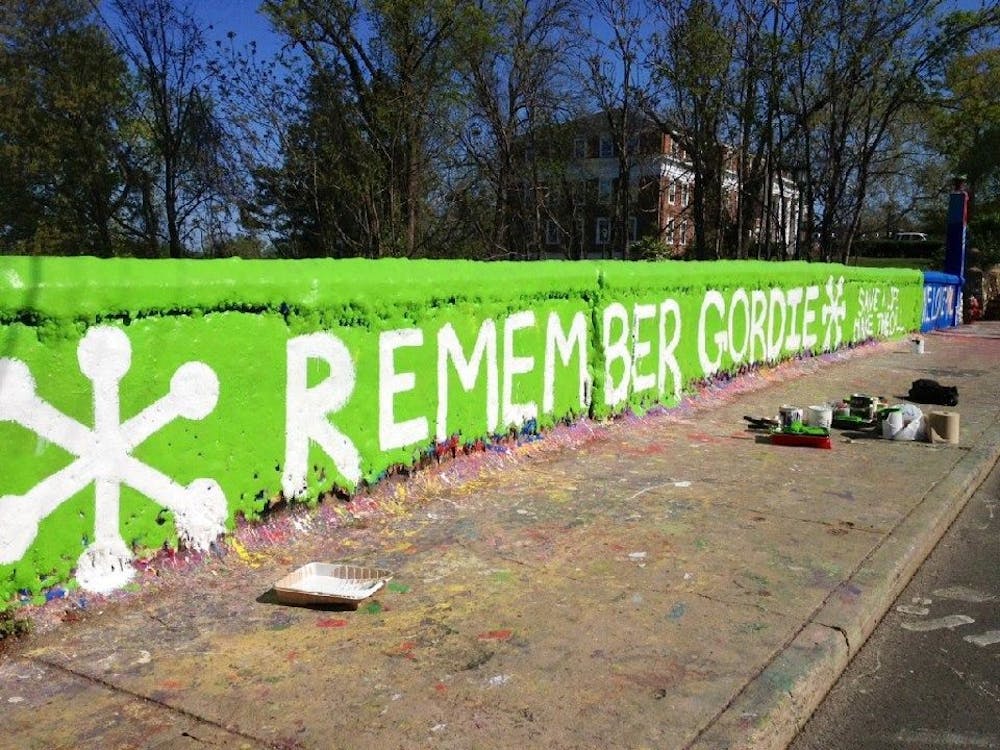When students arrive at the University, many yearn to find their places by bonding with certain groups of people and feeling as though they “fit in.” One tool many groups on Grounds use to foster intimacy in a group is a process called hazing.
Merriam Webster Dictionary defines hazing as “[harassing] by exacting unnecessary or disagreeable work.” While many forms of hazing are thought of as “bonding,” other forms can lead to more extreme outcomes, such as death. This was the outcome for one student in particular, Gordon “Gordie” Bailey Jr.
As part of a hazing ritual before his fraternity’s bid night, Gordie, a freshman at the University of Colorado, was encouraged to drink excessively. Later in the evening, he was visibly intoxicated, and left on the couch to sleep it off. The next morning, on September 17, 2004, he was found dead with a BAC of 0.33.
In the aftermath of his death, Gordie’s parents, Michael and Leslie Lanahan, founded the nonprofit Gordie Foundation in efforts to prevent the same thing from happening to others.
This past week was National Hazing Prevention Week, and students from two organizations, ADAPT (Alcohol and Drug Abuse Prevention Team) and the Gordie Center came together to advocate against hazing.
On Wednesday, September 23, the Gordie Center and ADAPT screened the documentary, Haze, the story of Gordie’s death. Fourth-year College student and ADAPT member, Marissa Kuo, was responsible for facilitating discussion after the film.
“Generating these open discussions is so important...That’s why we don’t just show [the film] and say ‘alright, see you later,’” Kuo said. “It ensures students can voice their opinions without being judged.”
The film is graphic, showing the photos of Gordie the coroner’s office released. Fourth-year College student and ADAPT co-Chair Brittany Heck has viewed the film multiple times now, and advocates for its power as a wake-up call to students.
“It was so shocking... I needed a moment after seeing those pictures,” Heck said. “It was very moving about how real [hazing] was and that it could be someone you know.”
In addition to screening Haze, ADAPT members tabled throughout the week. They asked people to sign the pledge saying they would look out for their friends, watch for signs of alcohol abuse and call someone if they identify signs of PUBS (puking, unresponsive to touch, breathing irregular, skin blue, cold, and clammy.)
While ADAPT members were hard at work in preparation for this week, members were also dealing with another tragedy — the loss of the ADAPT chair, fourth-year Margaret Lowe. After Lowe’s sudden death in early September, ADAPT members were left to simultaneously grieve for the loss of a dear friend and colleague, and continue work for the approaching week.
Heck is one of two ADAPT members who now serve as the face of ADAPT.
“[Margaret] was the face of our organization, it’s a big loss,” Heck said. “We’re kind of in a difficult transition time, but everyone is pulling together.”
While the transition presented many obstacles for ADAPT to overcome, members are still motivated by their overarching goal of preventing alcohol abuse.
“People see [ADAPT] and they're like, ‘oh no, they sit at home and think up ways to get us to stop drinking and having fun,’” Kuo said. “But that’s not what we’re about. We’re all about keeping people safe. We know people drink. It’s all about abuse prevention.”
Rather than discouraging the concept of bonding, ADAPT and Gordie Center encourage student organizations to reflect on the way they facilitate bonding.
“[The Gordie Center’s] mission is getting organizations to talk about their values,” National Program Organizer for the Gordie Center, Deirdre Feeney, said. “How are new members being brought in in a way that is in line with the values of your organization?”
While the long-term goal is to eliminate hazing altogether, students recognize that this process will take time. Instead, students look to short-term goals to facilitate change.
“Knowledge is the best tool we can equip people with,” Kuo said. “If we can do that successfully, the rest will fall into place over time.”







